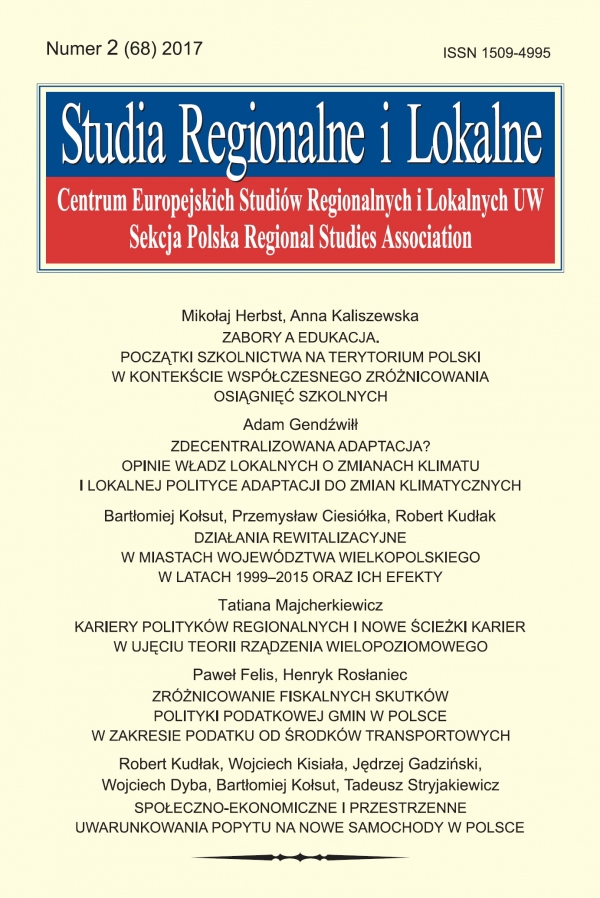Issue:
2(68)/2017
Paweł Felis, Henryk Rosłaniec
The differences in fiscal results of municipal tax policies concerning vehicle tax
DOI: 10.7366/150949956805
Zróżnicowanie fiskalnych skutków polityki podatkowej gmin w Polsce w zakresie podatku od środków transportowych
W artykule uwaga skoncentrowana została na podatku od środków transportowych, interesującym nie tyle ze względu na jego wydajność, ile dużą mobilność bazy podatkowej. Celem było rozpoznanie zróżnicowania fiskalnych skutków decyzji z zakresu władztwa podatkowego gmin z punktu widzenia takich kryteriów, jak typ gminy i kategoria podatnika. Pogłębione badania, do których wykorzystano analizę korelacyjną, klasyczny test niezależności Pearsona i korelację rho Spearmana, umożliwiły pozytywne zweryfikowanie hipotez. Otóż polityka podatkowa gmin wpływała na wysokość dochodów z tego podatku, ale jej skutki były w poszczególnych jednostkach w okresie bieżącym i późniejszych zróżnicowane. Ponadto władztwo podatkowe gmin w przypadku podatku od środków transportowych dotyczyło w szczególności obniżenia górnych stawek podatkowych. Dla gmin, w których zależności były najbardziej widoczne, zaprezentowano również modele ekonometryczne ilustrujące skutki polityki podatkowej w stosunku do niektórych kategorii podatników podatku od środków transportowych.
The differences in fiscal results of municipal tax policies concerning vehicle tax
The article concentrates on vehicle tax, which is interesting not only due to its efficiency, but also high mobility of the tax base. The study aims to examine the correlation between fiscal results and municipal policies, from the perspective of such criteria as the type of municipality and taxpayer category. The study is based on correlation analysis, in which Pearson’s independence test and Spearman’s rho coefficient are used. The results confirm that the tested correlations do exist. Municipal tax policy influences tax revenues of the studied tax, though the results in each unit are different between the current and later periods. Moreover, in the case of vehicle tax, municipal authorities’ main action was to lower the upper tax rates. For municipalities in which these relations were the most visible, econometric models were built. These illustrate the effects of tax policy in relation to certain taxpayer categories.
Affiliation:
Paweł Felis: Szkoła Główna Handlowa, Instytut Finansów, al. Niepodległości 162, 02-554 Warszawa;
pfelis@sgh.waw.pl Henryk Rosłaniec: Wyższa Szkoła Finansów i Zarządzania w Warszawie, Katedra Metod Ilościowych, ul. Pawia 55, 01-030 Warszawa;
hroslaniec@gmail.com 


